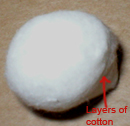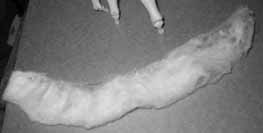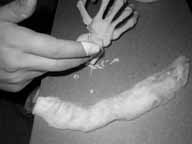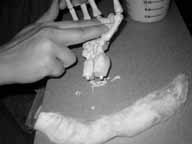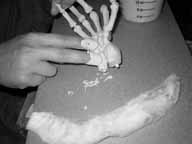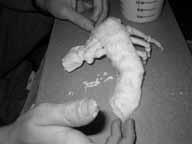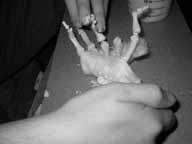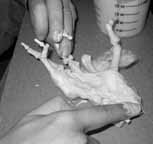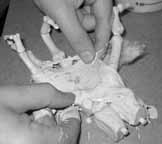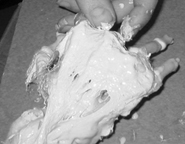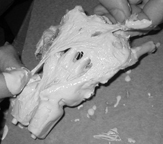

| Prosthetics |
| Props |
| Painting & Drawing |
| Digital Artwork |
| Specialty Pieces |
| Tutorials |
| Contact |
| Links |
| About the Artist |
|
Tutorials: How to Make a Corpse |
|
Material List: Latex
Cotton Balls
(be sure to not get
"Puffs" because they are actual balls of cotton not rolled up layers
of cotton)
What to do before working: Take a drop of latex and put it on your inner arm near the elbow and let it dry. This is a test to make sure that you are not allergic to the latex. If there is redness, burning, or discomfort you might want to wear vinyl gloves when working with latex. Change into old clothing that you donít mind if they get ruined. If latex gets into any material the odds are that it is not coming out, so please keep latex away from important clothing or other items. Instructions: 1. Latex by nature is clear to flesh-toned depending on how thick it is applied and will turn orangish as it is exposed to light due to the fact that it is an organic material; therefore, it is recommended to start with colored latex to simplify painting and life of the piece. To achieve this add latex-based house paint to the latex: Add some paint, mix thoroughly, then test the color on something like a piece of wood, concrete, or even your project. Latex dries much darker than it looks wet. Once you have the color ratio that is the lightest you want your finished product to look then you are ready to start.
2. Take the time
to carefully unroll the cotton balls and have them handy. Latex
dries quickly so once you start you will not have much time to stop
and unroll more. |
